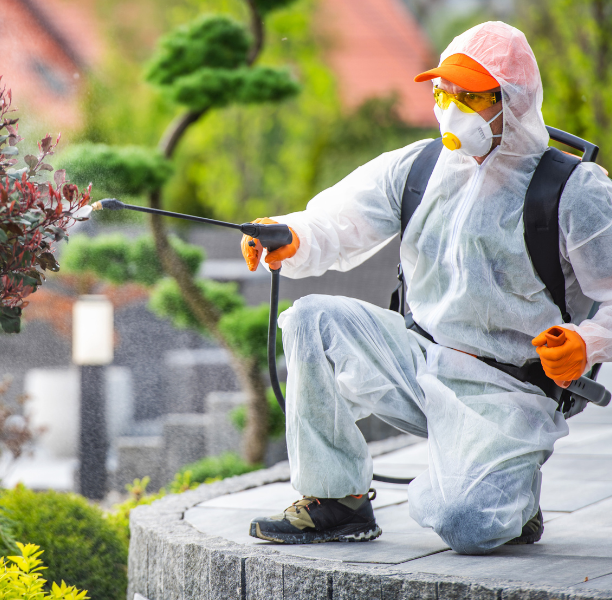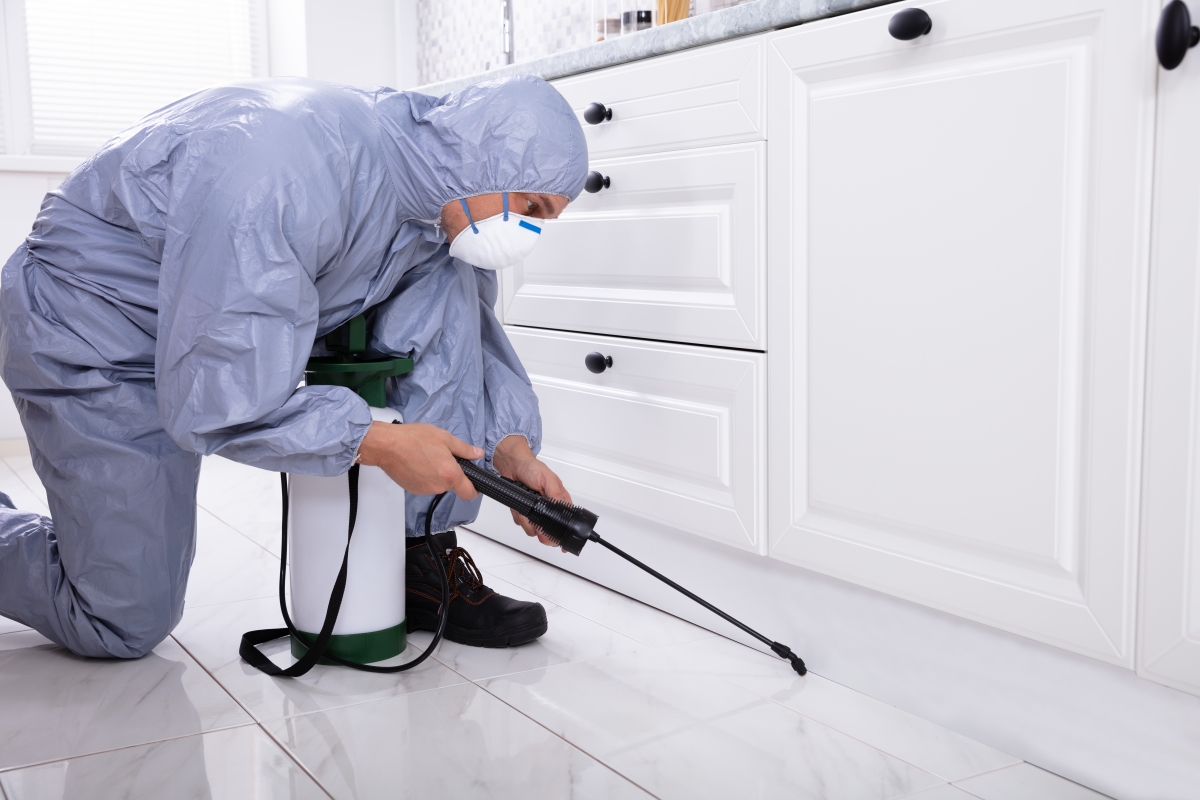Safe and Trusted Parasite Control for Lasting Defense
The relevance of secure and reliable bug control can not be overemphasized, specifically in an era where ecological issues are paramount. Effective bug monitoring needs a diverse method that stabilizes ecological stability with the requirement for reliable parasite suppression. By discovering environment-friendly services and integrated pest administration techniques, home owners can accomplish enduring protection versus invasive varieties while guarding helpful ecosystems. However, the subtleties of these approaches may not be instantly clear, triggering a more detailed exam of the techniques that can bring about sustainable parasite control end results. What steps can be required to ensure both safety and security and effectiveness in parasite management?
Recognizing Parasite Control Approaches
Bug control incorporates a variety of techniques targeted at handling and eradicating undesirable bugs and rats that can intimidate both health and home. Recognizing these methods is crucial for reliable parasite administration.
The primary classifications of parasite control methods consist of mechanical, organic, and chemical techniques. Mechanical methods entail physical barriers and catches to avoid bug entrance and capture unwanted varieties. For example, making use of displays on windows or utilizing sticky catches can significantly minimize parasite populations without introducing hazardous materials.

Chemical parasite control is typically one of the most recognized method, utilizing chemicals to remove bugs. These chemicals can be efficient yet must be made use of with caution to avoid negative results on non-target types and the environment.
Advantages of Eco-Friendly Solutions
Just how can eco-friendly options transform parasite control practices? The adoption of environment-friendly pest control approaches supplies many benefits, considerably improving the performance and security of parasite administration.

One more advantage is the favorable influence on local biodiversity. Environmentally friendly services are designed to target details pests while protecting useful insects and wildlife, promoting a well balanced environment. This strategy lines up with the expanding customer demand for lasting practices, enhancing the reputation of insect control service providers.
Integrated Insect Management Techniques
The implementation of environmentally friendly services naturally leads to the fostering of Integrated Insect Monitoring (IPM) methods, which additionally boost bug control effectiveness. IPM is an all natural method that combines several strategies to handle bug populaces while decreasing ecological impact. This approach stresses the usage of organic, cultural, mechanical, and chemical controls, ensuring a lasting and well balanced method of bug management.
One basic facet of IPM is the complete analysis of bug task and ecological problems. By checking bug image source populaces and determining their life process, professionals can implement targeted treatments that interfere with the insect's habitat or lifecycle, minimizing dependence on chemical pesticides. Furthermore, social methods such as crop turning and habitat adjustment can dramatically lessen parasite establishment and reproduction.
One more crucial element is making use of organic control representatives, such as advantageous bugs or microbes, which can naturally subdue parasite populations. When chemical applications are needed, IPM prioritizes using low-risk chemicals and applies them precisely, minimizing exposure to non-target microorganisms and humans.
Incorporating IPM strategies not just improves bug control efficiency but additionally advertises a much safer environment, aligning with the growing demand for sustainable methods in bug administration.
Safe Practices for Homeowners
Comprehending the relevance of risk-free techniques in pest control can equip house owners to successfully take care of pest concerns while guarding their health and wellness and the atmosphere. Implementing non-toxic methods and safety nets is crucial in decreasing exposure to unsafe chemicals.
Home owners ought to first examine their environment for conditions that draw in insects, such as standing food, water, and mess waste. On a regular basis cleansing and sealing entrance points can deter pests from attacking the home. Utilizing all-natural deterrents, such as crucial oils or diatomaceous earth, can offer reliable alternatives to chemical pesticides.
When chemical treatments are required, house owners must opt for items that are particularly labeled as secure for household usage. It is vital to adhere to application standards diligently to stay clear of too much exposure. Making use of targeted therapies in areas where pests are determined, instead than covering splashing, can significantly decrease chemical usage.
Last but not least, maintaining open communication with bug control experts is vital. Home owners must ask about the safety and security of products used and request environment-friendly alternatives whenever possible. By taking on these secure practices, home owners can produce a healthier living environment while properly handling bug issues.

Tips for Long-Term Protection
Establishing a parasite monitoring method that emphasizes long-lasting defense can greatly boost the effectiveness of the safe techniques formerly gone over. To accomplish this, home owners need to apply regular inspections of their property, focusing on concealed locations such as attics, basements, and crawl spaces. Early discovery of insect have a peek here task is crucial in avoiding invasions from holding.
Additionally, keeping a tidy setting is essential. This includes proper food Going Here storage, promptly cleaning up spills, and routinely taking care of rubbish. These practices decrease attractants that draw pests into the home. Securing entrance points, such as splits around doors and home windows, can effectively obstruct possible bug accessibility.
Landscape design should additionally be considered; keeping plants trimmed and maintaining a distance in between plants and the home minimizes hiding places for bugs. Using natural deterrents, such as necessary oils or diatomaceous earth, can further inhibit problems without resorting to harsh chemicals.
Last but not least, working together with a specialist insect control service for routine evaluations can give an added layer of protection. These professionals can provide customized recommendations and advanced treatments, making certain that your home remains shielded against parasites in the long-term.
Final Thought
Finally, reputable and secure parasite control needs a complex strategy that stresses eco-friendly techniques and incorporated pest administration. By applying natural deterrents, performing regular inspections, and keeping proper hygiene, homeowner can significantly reduce bug populaces while protecting useful bugs and the setting. Cooperation with expert pest control services improves the performance of these strategies, ensuring customized services that offer lasting defense and satisfaction versus future problems.
Reliable pest administration requires a multifaceted technique that stabilizes environmental integrity with the need for reliable pest suppression. The fostering of environmentally friendly bug control approaches provides various benefits, significantly enhancing the performance and safety and security of insect monitoring.The execution of environmentally friendly options normally leads to the fostering of Integrated Bug Management (IPM) strategies, which additionally enhance bug control efficiency. exterminator coquitlam. By checking parasite populaces and recognizing their life cycles, practitioners can execute targeted treatments that disrupt the bug's environment or lifecycle, reducing reliance on chemical pesticides.In conclusion, dependable and safe parasite control requires a complex strategy that highlights environmentally friendly techniques and integrated insect administration